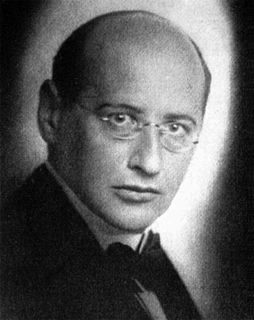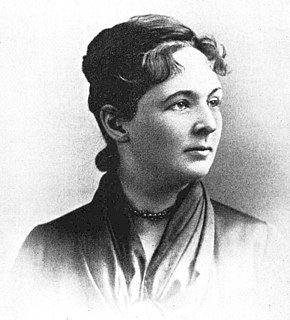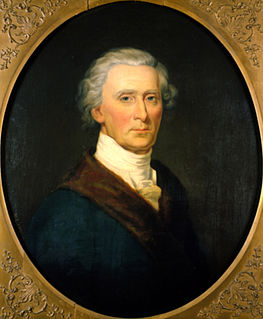Цитата Бертрана Рассела
[Церковь] по большей части является противником прогресса и совершенствования во всех путях, которые уменьшают страдания в мире, потому что она решила назвать моралью определенный узкий набор правил поведения, которые не имеют ничего общего с человеческими счастье; и когда вы говорите, что то или иное должно быть сделано, потому что это будет способствовать человеческому счастью, они думают, что это не имеет никакого отношения к делу. «Какое отношение человеческое счастье имеет к морали? Цель морали не в том, чтобы делать людей счастливыми.
Темы цитат
Потому что
определенное
избранное
церковное
поведение
Уменьшает
Готовое
Счастье
Счастливое
Человеческое
Человеческое
счастье
Улучшение
Ярлык
Важное
Делает
дело Мораль
Нравственность
Узкое Ничего
Не
Противник
Должен
расстаться
Люди Прогресс
Правила
Говорят
Установить
Все еще
Страдающие
Мыслить
Какими
способами будет мир
Связанные цитаты
Независимо от того, из какой части мира мы родом, мы все в основном одни и те же люди. Мы все ищем счастья и пытаемся избежать страданий. У нас одни и те же основные человеческие потребности и заботы. Все мы, люди, хотим свободы и права определять свою судьбу как личностей и народов. Такова человеческая природа.
Нельзя слишком часто говорить, что действия хороши или плохи в свете последствий, и что четкое понимание последствий будет управлять действиями. То, что увеличивает сумму человеческого счастья, морально; и то, что уменьшает сумму человеческого счастья, безнравственно. . . . Слепое, неразумное послушание — враг нравственности.
Пожалуйста, перестаньте ждать лучшего и более подходящего времени, чтобы стать счастливым, и сосредоточьтесь на моменте, в котором вы живете. Счастье — это не достижение, это само путешествие. Многие люди ищут счастья выше человеческого роста, некоторые ниже. Тем не менее, счастье находится точно на высоте человеческих существ.
Счастье и абсурд — два сына одной земли. Они неразлучны. Было бы ошибкой сказать, что счастье обязательно возникает из абсурдного открытия. Бывает и так, что чувство абсурда проистекает из счастья. «Я заключаю, что все хорошо», — говорит Эдип, и это замечание священно. Это отдается эхом в дикой и ограниченной вселенной человека. Он учит, что все еще не исчерпано, еще не было исчерпано. Он изгоняет из этого мира бога, пришедшего в него с неудовлетворенностью и предпочтением напрасных страданий. Это делает судьбу человеческим делом, которое должно решаться среди людей.
Это основная человеческая потребность, что каждый хочет жить счастливой жизнью. Для этого нужно испытать настоящее счастье. Так называемое счастье, которое человек испытывает, имея деньги, власть и предаваясь чувственным удовольствиям, не является настоящим счастьем. Он очень хрупок, нестабилен и скоротечен. Для настоящего счастья, для прочного стабильного счастья нужно совершить путешествие глубоко внутрь себя и избавиться от всего несчастья, хранящегося на более глубоких уровнях ума. Пока в глубине ума есть страдание, все попытки почувствовать себя счастливыми на поверхностном уровне ума оказываются тщетными.
Обычно мы пытаемся выяснить, что, по нашему мнению, сделает нас счастливыми, а затем пытаемся воплотить эти вещи в жизнь. Но счастье не зависит от обстоятельств. Есть люди, у которых есть все основания быть счастливыми, но они таковыми не являются. Есть люди с настоящими проблемами. Ключ к счастью – это решение быть счастливым.
Не слишком беспокойтесь о деньгах, потому что это величайшее препятствие на пути к счастью. Ирония иронии в том, что люди думают, что будут счастливы, когда у них будут деньги. Деньги не имеют ничего общего со счастьем. Если вы счастливы и у вас есть деньги, вы можете использовать их для счастья. Если вы несчастливы и у вас есть деньги, вы потратите эти деньги на еще большее несчастье. Потому что деньги — это просто нейтральная сила.
Расширение сферы общественного счастья достойно благожелательного замысла масонского учреждения; и очень хочется, чтобы поведение каждого члена братства, а также те публикации, которые открывают принципы, которые их приводят в действие, могли убедить человечество в том, что великая цель масонства состоит в содействии счастью человеческая раса.
Я думаю, что для меня счастье имеет решающее значение, но я думаю, что мы думаем, что счастье приходит от накопления благ и приобретения вещей, любви и успеха, тогда как на самом деле мое ощущение счастья приходит, когда вы отдаете все, когда вы служите людям, когда ты смотришь что-то, что ты делаешь, делаешь кого-то счастливым, вот тогда и случается счастье.
Для оптимистов человеческая жизнь никогда не нуждается в оправдании, сколько бы обид ни накопилось, потому что они всегда могут сказать себе, что все наладится. Для пессимистов нет такого количества счастья — даже если такое понятие, как счастье, вообще существует для людей, за исключением заблуждения, — которое может компенсировать нам жизненную боль.
Без морали республика не может существовать сколько-нибудь долго; Поэтому те, кто порицает христианскую религию, чья нравственность столь возвышенна и чиста (и) которая обеспечивает доброе вечное счастье, подрывают прочное основание нравственности, наилучшую безопасность на время существования свободных правительств.


































